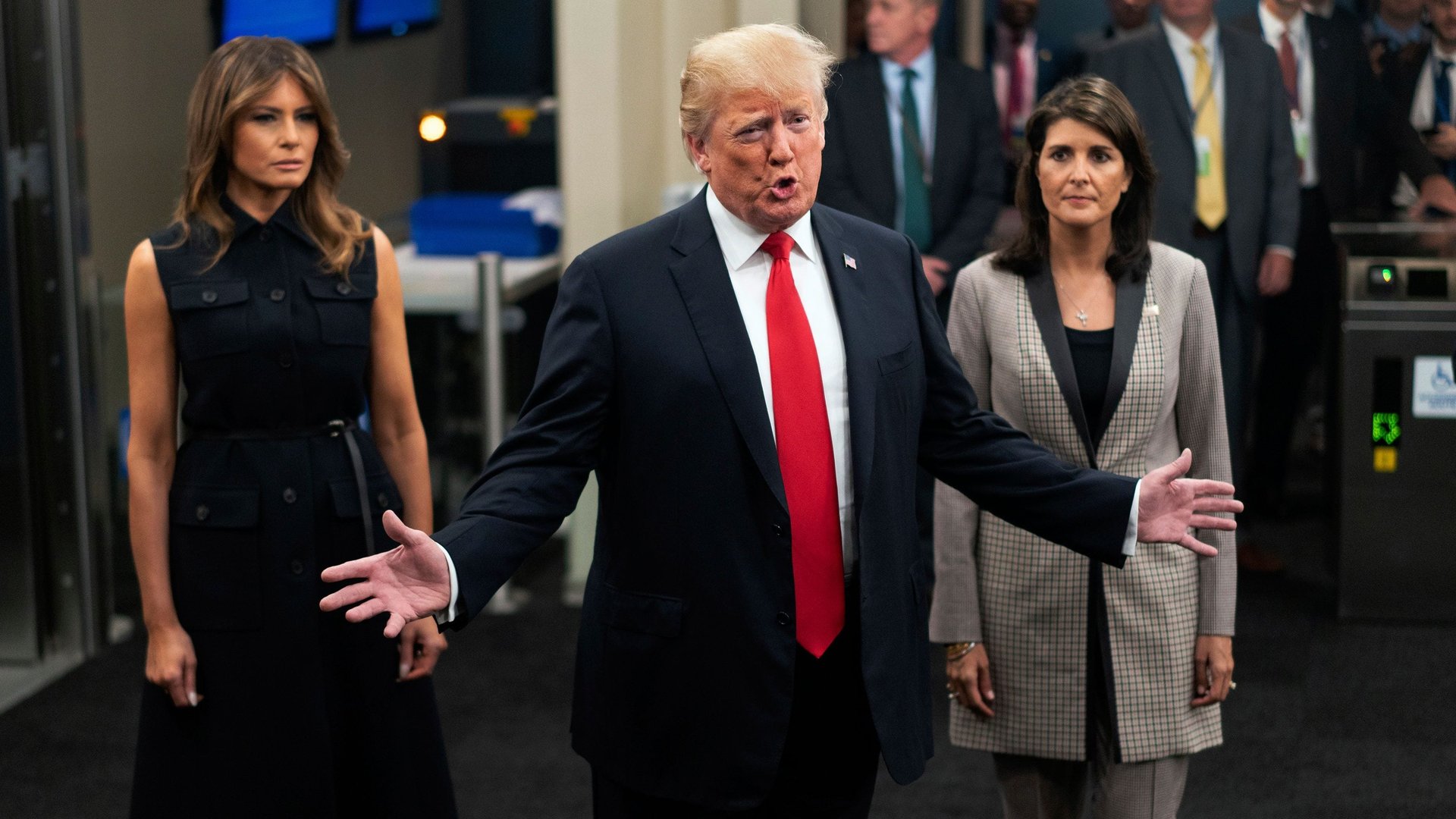Trump’s doctrine of “principled realism” baffles the foreign policy world
Donald Trump again used the UN stage to trumpet a policy of “principled realism,” whatever that may mean.


Donald Trump again used the UN stage to trumpet a policy of “principled realism,” whatever that may mean.
At first glance, the doctrine seems a contradiction in terms. In political science, realism is “essentially an approach to foreign policy that puts the nation’s interests above all other considerations—whether moral, human, or whatever,” says Paul Stares, a senior fellow at the Council on Foreign Relations. “It’s all about national security and prosperity, and nothing else.”
So, once you add principles to a doctrine that places national interest above all principles, what do you actually believe in? The idea is “vacuous,” Stares tells Quartz.
“It has superficial appeal—you know, every American wants to be both principled and realistic but what does it actually mean in practice? Is it the idea that we should follow the principles of realism or be principled in a realistic way?” he asks. “In fact if you look at our policy in all kinds of places, we do one and contravene the other.”
He points to Iran and North Korea as two of many contradictory examples. With Iran, the US has played to principles but not its main interests by pulling out of a multilateral nuclear deal. That seems to have put the US in more danger, as it refuses to deal directly with a theocratic regime. By contrast, the US has try to rein in North Korea’s nuclear ambitions, but to do so, Trump helped legitimize its dictator Kim Jong Un when he became the first US president to meet with a North Korean leader.
The administration’s overall foreign policy has mainly looked like “ad hoc-ery” rather than an approach based on either principles or realism, says Richard Gowan of the United Nations University.
Trump betrayed such contradictions in his own speech. While emphasizing the importance of national sovereignty, he promised that “the United Sates will not tell you how to live or work or worship.” He then insisted that “all nations of the world should resist socialism,” and, after his speech, refused to rule out military intervention in Venezuela.